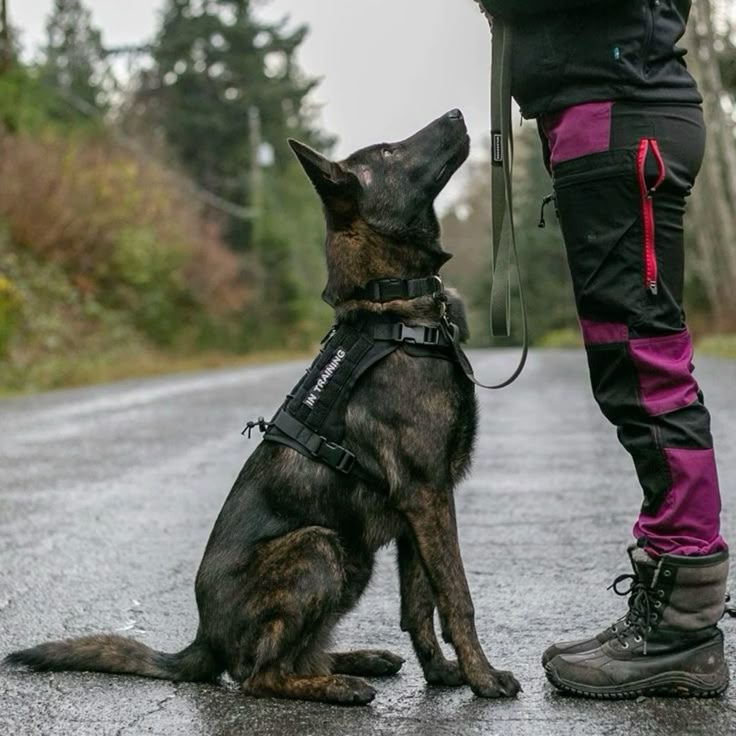Los Angeles is a city filled with dedicated pet owners, many of whom seek the wisdom of the area’s most respected dog trainers. These professionals, known for their deep understanding of canine behavior and effective methodologies, consistently offer invaluable advice that helps transform dogs into well-behaved, confident, and happy companions. Drawing from years of experience, here’s some expert advice from the best dog training LA.
Start Early and Be Consistent
One of the most universal pieces of advice from LA’s top trainers is to begin training and socialization as early as possible. For puppies, the period between 8 and 16 weeks is crucial for positive exposure to new sights, sounds, people, and other dogs. Early intervention helps prevent behavioral issues from developing. Equally important is consistency. Dogs thrive on predictability. Trainers emphasize that every member of the household must use the same commands, hand signals, and rules. Inconsistency can confuse a dog and slow down the learning process. Establishing clear, consistent routines for feeding, potty breaks, exercise, and training sessions from day one is paramount for a well-adjusted pet.
Embrace Positive Reinforcement
Leading LA dog trainers are staunch advocates for positive reinforcement. Their expert advice centers on rewarding desired behaviors rather than punishing unwanted ones. This means using high-value treats, praise, toys, or play to mark and reinforce actions you want your dog to repeat. They advise against using harsh corrections, fear-based methods, or aversive tools, as these can damage a dog’s trust, increase anxiety, and lead to behavioral fallout. Instead, focus on making training a fun and rewarding experience for your dog, which strengthens your bond and makes them eager to learn and please.
Understand Canine Body Language
A key piece of expert advice is for owners to learn to “speak dog” by understanding canine body language. Top trainers teach clients how to recognize subtle cues that indicate stress, fear, excitement, or discomfort in their dog. This understanding allows owners to intervene proactively, de-escalate potentially problematic situations, and respond appropriately to their dog’s emotional state. Recognizing signs like yawning, lip licking, tail tucking, or stiff body posture can help owners avoid conflicts and build a stronger, more empathetic relationship with their pet.
Prioritize Mental and Physical Exercise
Many behavioral problems stem from a lack of appropriate outlets for a dog’s energy and intelligence. LA’s top trainers consistently advise owners to provide ample mental and physical exercise tailored to their dog’s breed and age. This goes beyond just a walk around the block. It includes activities like structured play, puzzle toys, scent work, training sessions that challenge their minds, and engaging walks that allow for sniffing and exploration. A tired and mentally stimulated dog is less likely to engage in destructive chewing, excessive barking, or other undesirable behaviors.
Manage the Environment for Success
Expert trainers often emphasize the importance of environmental management to set your dog up for success. This means proactively preventing opportunities for your dog to practice unwanted behaviors. For example, if your puppy chews furniture, manage access to those items until they learn appropriate chewing habits. If your dog jumps on guests, use a leash and gate to manage greetings until they learn to sit politely. Management is not a substitute for training, but it’s a crucial tool that prevents rehearsal of bad habits while your dog is learning new, desirable ones.
Seek Professional Help for Complex Issues
Finally, top dog trainers in LA strongly advise owners not to hesitate in seeking professional help for complex or persistent behavioral issues. While basic obedience can often be tackled with consistency, problems like aggression, severe separation anxiety, or intense fear require the expertise of a certified professional. Attempting to manage these issues without proper guidance can inadvertently worsen them. Recognizing when to call in an expert is a sign of responsible pet ownership, ensuring your dog receives the specialized support they need for a happy and well-adjusted life.
